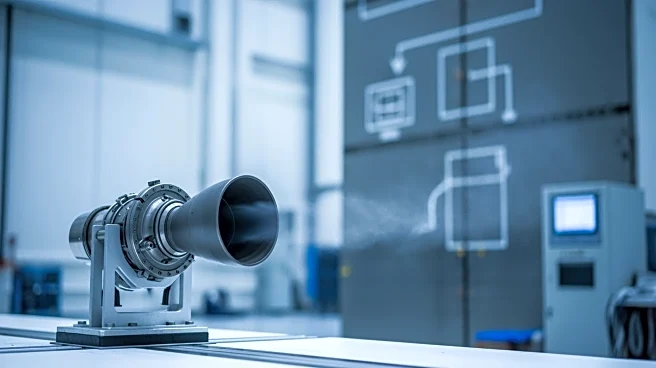What's Happening?
In the North Sea, thousands of hoverflies have been observed swarming an oil rig, a phenomenon that has intrigued scientists. Engineer Craig Hannah noticed these insects, often mistaken for bees, resting on the rig before taking off simultaneously. Hoverflies are known for their role as pollinators and their ability to migrate over long distances, sometimes hundreds of miles. Hannah collected samples of these hoverflies and sent them to researchers at the University of Exeter in the UK. The research team, led by biologist Eva Jimenez-Guri, discovered that the hoverflies were carrying significant amounts of pollen, indicating their potential impact on pollination across vast distances. This study marks the first time scientists have examined pollen transport by insects over water at such distances.
Why It's Important?
The discovery of hoverflies carrying pollen over long distances in the ocean could have significant implications for understanding pollination and genetic diversity in plant populations. If these insects can successfully transport pollen across such distances, they may play a crucial role in introducing new genetic material to isolated plant communities, potentially affecting biodiversity and ecosystem resilience. This research could lead to new insights into the mechanisms of pollination and the role of insects in maintaining ecological balance, especially in remote or isolated environments.
What's Next?
The research team plans to investigate whether the pollen carried by hoverflies can survive the journey and effectively pollinate plants upon arrival. This could involve further studies on the viability of pollen after long-distance travel and its impact on plant reproduction and genetic diversity. The findings could influence conservation strategies and agricultural practices, particularly in areas where traditional pollinators are scarce or declining.
Beyond the Headlines
This study highlights the importance of understanding insect migration and its ecological impacts, which could have broader implications for climate change adaptation and biodiversity conservation. The ability of hoverflies to transport pollen over long distances may offer insights into how ecosystems can adapt to changing environmental conditions and the role of insects in facilitating these changes.










